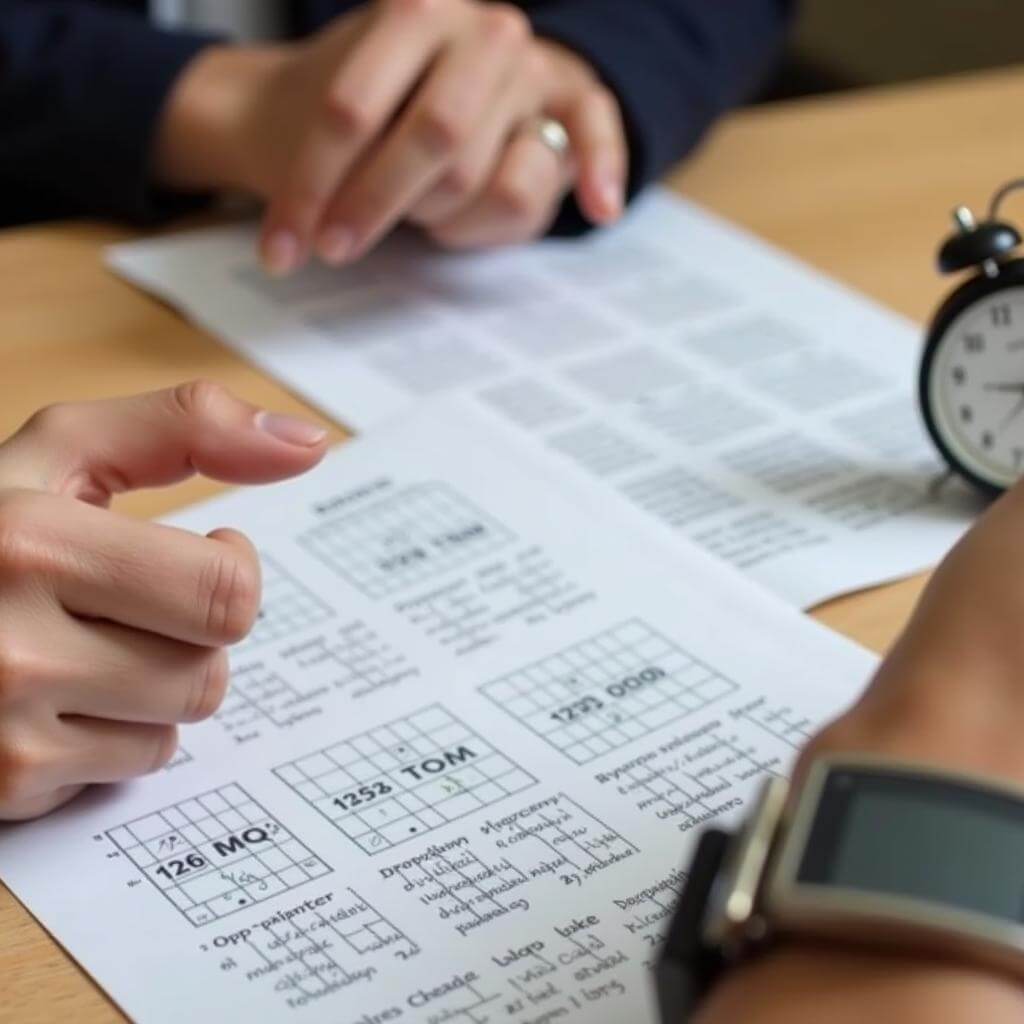Improving speed without compromising accuracy is a crucial skill for IELTS success. Many test-takers struggle to balance these two elements, often sacrificing one for the other. This comprehensive guide will explore effective strategies to enhance your speed while maintaining precision across all IELTS sections.
Understanding the Speed-Accuracy Balance in IELTS
Before diving into specific techniques, it’s essential to recognize the importance of balancing speed and accuracy in IELTS. Dr. Emily Parker, a renowned IELTS expert with over 15 years of experience, explains:
“The key to IELTS success lies not in rushing through questions, but in developing efficient strategies that allow you to work quickly without sacrificing comprehension or precision.”
This balance is critical in all four IELTS modules: Listening, Reading, Writing, and Speaking. Let’s explore how to achieve this equilibrium in each section.
Enhancing Speed and Accuracy in IELTS Listening
The IELTS Listening test demands quick processing and accurate note-taking. Here are some strategies to improve your performance:
- Develop active listening skills
- Practice predicting answers
- Improve your note-taking technique
- Familiarize yourself with various accents
How to improve IELTS listening band score provides more in-depth strategies for excelling in this module.
Mastering the Art of Prediction
Prediction is a powerful tool for improving both speed and accuracy in IELTS Listening. By anticipating the type of information you’ll hear, you can focus your attention more effectively and process information faster.
Boosting Reading Speed and Comprehension
The IELTS Reading test often poses the greatest challenge in terms of time management. Here are techniques to enhance your reading speed without losing accuracy:
- Improve your skimming and scanning skills
- Practice active reading techniques
- Expand your vocabulary
- Develop a strategic approach to different question types
For a more comprehensive guide on improving your reading skills, check out How to improve IELTS reading for non-native speakers?
The Power of Skimming and Scanning
Mastering these two techniques can significantly boost your reading speed and accuracy. IELTS coach Sarah Thompson advises:
“Skimming gives you the big picture, while scanning helps you locate specific information quickly. Combined, these skills allow you to navigate complex texts efficiently without missing crucial details.”
Enhancing Writing Speed and Quality
In the IELTS Writing test, balancing speed with quality is crucial. Here are strategies to help you write faster without compromising content:
- Plan your essays effectively
- Use time management techniques
- Practice typing or handwriting to increase speed
- Develop a bank of high-scoring phrases and sentence structures
The 5-Minute Planning Technique
Spending just 5 minutes planning your essay can save you valuable time during writing and improve overall coherence. Here’s a quick planning method:
- 1 minute: Analyze the question and brainstorm ideas
- 2 minutes: Organize your main points and supporting details
- 2 minutes: Outline your introduction and conclusion
This approach ensures you stay focused and write more efficiently, improving speed without sacrificing comprehension.
Speaking Fluently and Accurately
While the Speaking test doesn’t have the same time pressures as other modules, improving your fluency can boost your band score. Here’s how to speak more quickly and accurately:
- Expand your vocabulary with topic-specific language
- Practice speaking on various topics daily
- Use fillers and linking words effectively
- Record yourself and analyze areas for improvement
The 3-Second Rule for Fluency
IELTS Speaking examiner Mark Davis recommends:
“When answering questions, aim to start speaking within 3 seconds. This improves your fluency score and demonstrates confidence, even if you need to use fillers like ‘Well, let me think…’ to buy more time.”
General Tips for Improving Speed and Accuracy Across All IELTS Modules
- Familiarize yourself with the test format and question types
- Practice time management regularly
- Take full-length practice tests under exam conditions
- Analyze your mistakes and focus on problem areas
- Stay calm and confident during the test
Handling multiple-choice efficiently can significantly improve your speed and accuracy, especially in the Reading and Listening modules.

Conclusion
Improving speed without losing accuracy in IELTS requires consistent practice and the application of strategic techniques. By implementing the strategies outlined in this guide, you can enhance your performance across all IELTS modules. Remember, the goal is not just to work faster, but to work smarter. With dedication and the right approach, you can achieve the balance of speed and accuracy necessary for IELTS success.
For more comprehensive strategies on improving your IELTS band score, don’t forget to check out How to improve IELTS reading band score?
FAQs
-
How can I improve my reading speed for IELTS?
Practice skimming and scanning techniques daily, and gradually increase your reading pace while maintaining comprehension. -
What’s the best way to manage time in the IELTS Writing test?
Allocate specific time for planning, writing, and reviewing. Stick to this schedule rigorously during practice and the actual test. -
How can I speak faster in the IELTS Speaking test without making mistakes?
Regular practice with a variety of topics and recording yourself can help improve fluency and accuracy simultaneously. -
Is it better to guess or leave answers blank in IELTS?
It’s generally better to guess, as there’s no penalty for incorrect answers. However, ensure your guesses are educated based on the context. -
How can I improve my concentration during long IELTS Reading passages?
Practice active reading techniques, take short mental breaks between passages, and maintain good posture to stay focused. -
What’s the most effective way to practice for improving speed and accuracy in IELTS?
Take full-length practice tests under exam conditions regularly, and analyze your performance to identify areas for improvement. -
How important is vocabulary in improving speed and accuracy for IELTS?
A robust vocabulary is crucial. It enables quicker comprehension in Reading and Listening, and allows for more efficient expression in Writing and Speaking.